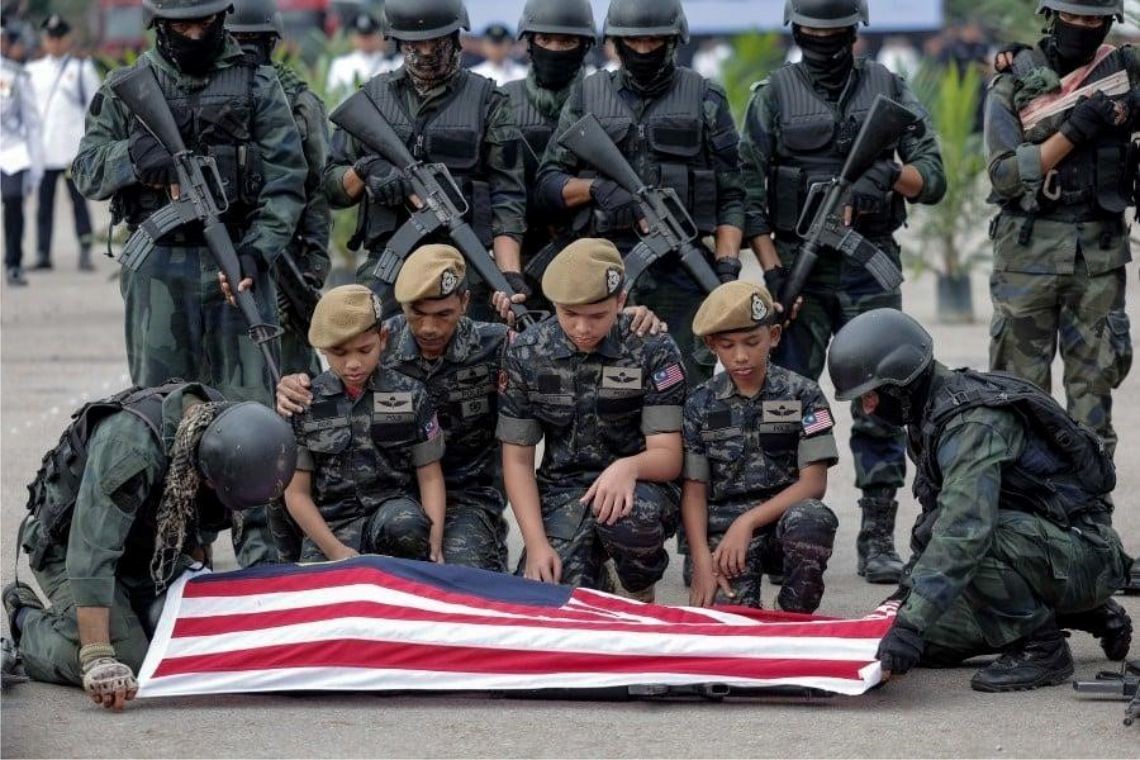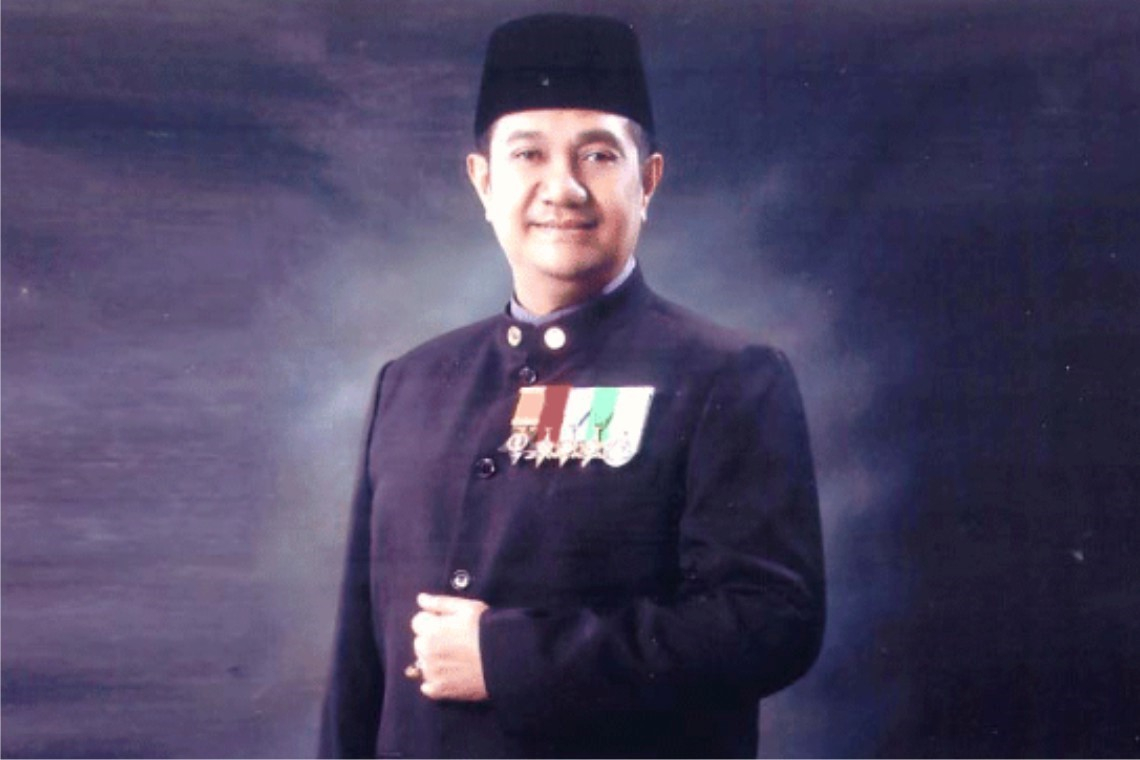Fuad A. Kiram has fabricated an extensive list of experiences to bolster his claim to the Sultanate of Sulu. Image Source: RoyalSulu, recovered through WebArchive
From the Royal Palace of Maimbung in Sulu, a figure emerged cloaked in ceremony and mystery, a man who styled himself as the heir to a fading sultanate.
With a now-defunct website touting his expertise in “the arts and science of heraldry,” he fashioned a royal persona as the modern-day Sultan of Sulu. But beyond the trappings and titles, who is Muhammad Fuad Abdulla Kiram and what claim, if any, does he truly hold to the title he asserts and the fortune he pursues?
He first appeared in headlines when he and a group of co-claimants brought forward a $15 billion claim against Malaysia, pursued through arbitration courts in Madrid, Paris, Luxembourg and The Hague. The narrative, at first glance, seemed one of justice: the heir of a Muslim Sultanate once integral to the Islamization and administration of Southeast Asia was seeking recompense for historical wrongs.
At the heart of the legal case was the colonial-era agreement over Sabah. In 1878, the British North Borneo Company agreed to pay the Sulu Sultanate an annual cession payment for the territory. Malaysia, as the post-colonial successor, continued those payments until 2013 when militants under the banner of the so-called “Royal Security Forces of Sulu” invaded Lahad Datu in Sabah under the leadership of Jamalul Kiram III, another supposed Sulu heir. The attack led to dozens of deaths among the militants, Sabahan civilians, and Malaysian security forces.
The investigations which followed the invasion also revealed Kiram’s association and involvement with groups accused of enabling the attack, including the MNLF, leading Malaysia to recognize Kiram as a terrorist.
✉ Get the latest from KnowSulu
Updated headlines for free, straight to your inbox—no noise, just facts.
We collect your email only to send you updates. No third-party access. Ever. Your privacy matters. Read our Privacy Policy for full details.

Malaysian soldiers and family members of casualties mourn the losses of the 2013 Lahad Datu Incident. Image Source: BernamaPic
Despite his wanted status, Kiram’s claim was funded by UK-based litigation funder Therium, and reached EU courtrooms with the argument that Malaysia owed not just the cession payments halted in 2013, but billions through Sabah’s economic value, wealth that Kiram claims as a Sulu fief. Arbitrators, however, have cast doubt over the claim’s legal foundation. The latest hearings in July 2025 are likely to result in its final dismissal after a saga that burned through millions in courtroom costs and led to the jailing of a Spanish arbitrator that acted illegally for Kiram’s cause.
Despite being wanted for terrorism, Kiram’s claim was funded by UK-based litigation funder Therium, and reached EU courtrooms.
As the Arbitration Fails, attention is drawn to the Mystery Sultan behind the Lawsuit
Yet as the dust settles on the arbitration, scrutiny remains on the individual who is the face of the lawsuit. Despite claiming to be a direct descendant of Sultan Muhammad Esmail E. Kiram I, and younger brother of Mahakuttah A. Kiram—the last undisputed Sultan until his death in 1986—Fuad’s position is far from universally accepted.
Among those disputing his claim is Muedzul Lail Tan Kiram, another descendant who has received wider domestic and international recognition, including formal acknowledgment by the Philippine government.
The controversy around Fuad Kiram goes beyond lineage. His now-defunct website listed a number of credentials and experiences that raise more questions than answers. Among them: an honorary doctorate from the “Academy of Chartered Diplomacy Europe, London”—an institution for which no verifiable presence exists. A similarly named “Diplomatic Academy Europe” operates elsewhere, but not in the UK. The only verifiable honorary doctorates granted to Kiram was awarded by the so-called International Royal Academy UN (IRAUN), and were nominally in the field of philosophy. Yet the IRAUN is itself not an accredited academic institution, but rather a vanity organization operated by individuals who claim lineage from the last Tsar of Russia.
Kiram claimed to have an honorary doctorate from the “Academy of Chartered Diplomacy Europe, London”—an institution for which no verifiable presence exists.
Kiram also claimed to have worked for the Philippine Department of National Defense from 1975 to 1996, allegedly receiving “many awards”—none of which are named or substantiated. His supposed later career as a “consultant” is equally vague, with no affiliated firms or clients disclosed.
Kiram also claimed to have worked for the Philippine Department of National Defense from 1975 to 1996, allegedly receiving “many awards”—none of which are named or substantiated.
Bolstering these fabricated experiences is a scheme: the “Royal Hashemite Sultanate of Sulu and Sabah,” an institution of Kiram’s own design that stands separate to the legitimate Sultanate of Sulu currently led by Muedzul Kiram as a cultural organization.
It’s important to note the original Sultanate of Sulu never used the term “Hashemite.” Kiram has instead leveraged the word to support the conjecture that Sharif ul-Hashim, the 15th-century Arab missionary who founded the Sulu Sultanate, was not only a Sayyid (descendant of the Prophet Muhammad), but also related to the royal Hashemite house of Jordan. This connection would by extension construe Kiram himself as bearing the royal blood of a more famous monarchy of the Muslim world. It’s a move that is not unheard of in history, yet stands as the latest attempt in a long history of pretenders fabricating lineages.
The original Sultanate of Sulu never used the term “Hashemite.”
Curiously, the “RoyalSulu” webpages hosting this extensive list of fantastical experiences were stood up in 2010 and taken down in 2015, a timeframe that surround the 2013 invasion of Sabah. Furthermore, the earliest sign of the extensive arbitral campaign to come was in 2017, when Kiram’s agents approached the UK Foreign and Commonwealth Office for Support. While speculative, Kiram’s bursting onto the stage of royal pageantry just prior to the violence of the Lahad Datu Incident and the consolidation of his internet footprint before the arbitral legal campaign provides some insight into Kiram’s efforts to build and control his image.
Webpages hosting Kiram’s experiences were stood up in 2010 and taken down in 2015, a timeframe that surround the 2013 invasion of Sabah.
Such a résumé would likely fail the scrutiny of most hiring managers. Yet it has served as the foundation for a series of complex legal actions that have, albeit briefly, pulled in some of Europe’s highest courts and cost millions in litigation. The court in Luxembourg would later remark in its rejection of the Sabah Arbitration that Kiram submitted fraudulent information including false addresses—perhaps to a royal court that simply does not exist.
Does the Fraudulent Pageantry Matter?
As the dust settles from court battles in Europe, many in Southeast Asia are left asking: how did this happen? And why should it matter?
In a region beset by more pressing concerns—climate disasters, poverty, armed conflict—questions of dynastic legitimacy can seem an indulgence of the past. And yet the performance of royal identity by self-declared sultans has had real-world costs, drawing precious attention and public resources away from the everyday needs of the Tausug people and the wider Southern Philippines.
Sulu’s historical role is not in question—it once stood as a central Islamic and political power in Southeast Asia. Yet when battles over succession are reduced to legal theatre and opportunistic claims, they risk cheapening what the Sultanate once represented.
Princess Jacel Kiram, daughter of claimed Sulu Sultan Jamalul Kiram III who led the armed invasion of Sabah in 2013, has called on Malaysia to share the wealth of Sabah with those bearing the name Kiram, asserting that it is sufficient for all. But in light of the recent events and the questionable credentials of those leading these claims, it is worth questioning whether this is a call for post-colonial justice or the plea of pretenders.
REFERENCES
KnowSulu. (2024, December 2). Succession disputes and discord within Sulus. KnowSulu. https://knowsulu.ph/
Royal Sulu. (2012, January 13). Genealogy of the Royal Sultanate of Sulu. Royal Sulu. https://web.archive.org/
Royal Sulu. (2013, June 7). The Sultan’s details (H.M. Sultan Muhammad Fuad Abdulla Kiram I). Royal Sulu. https://web.archive.org/



